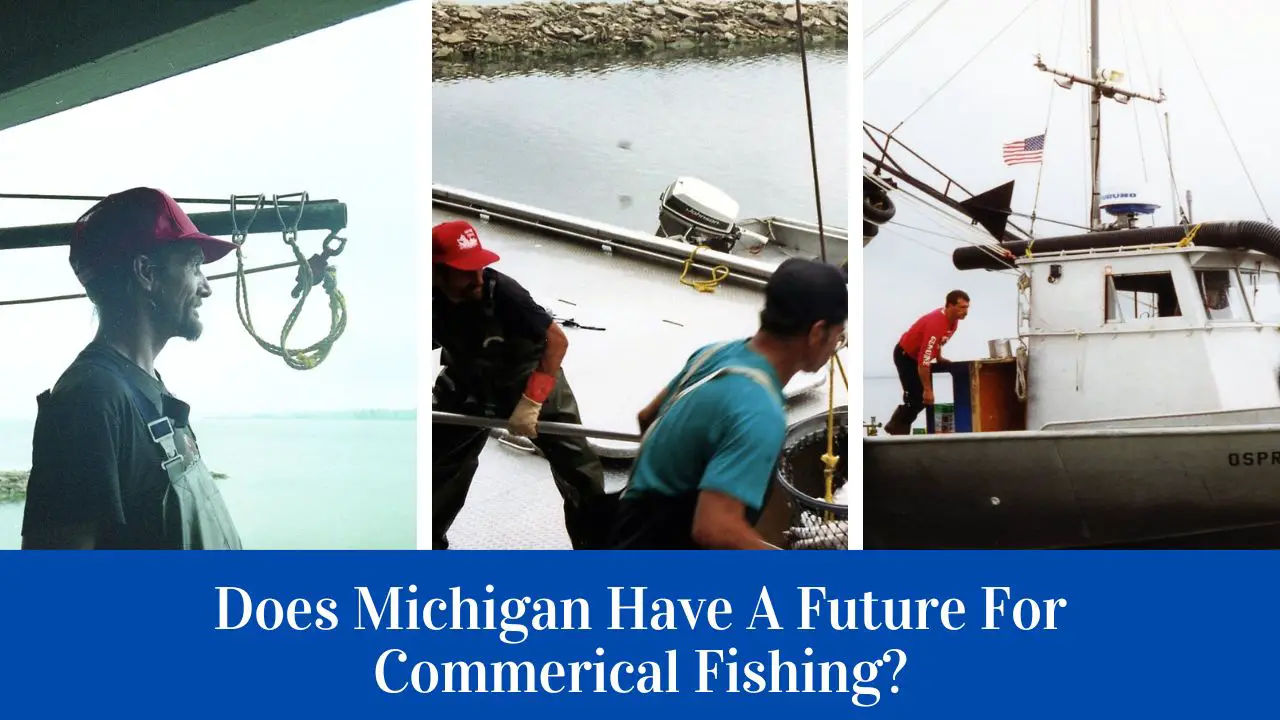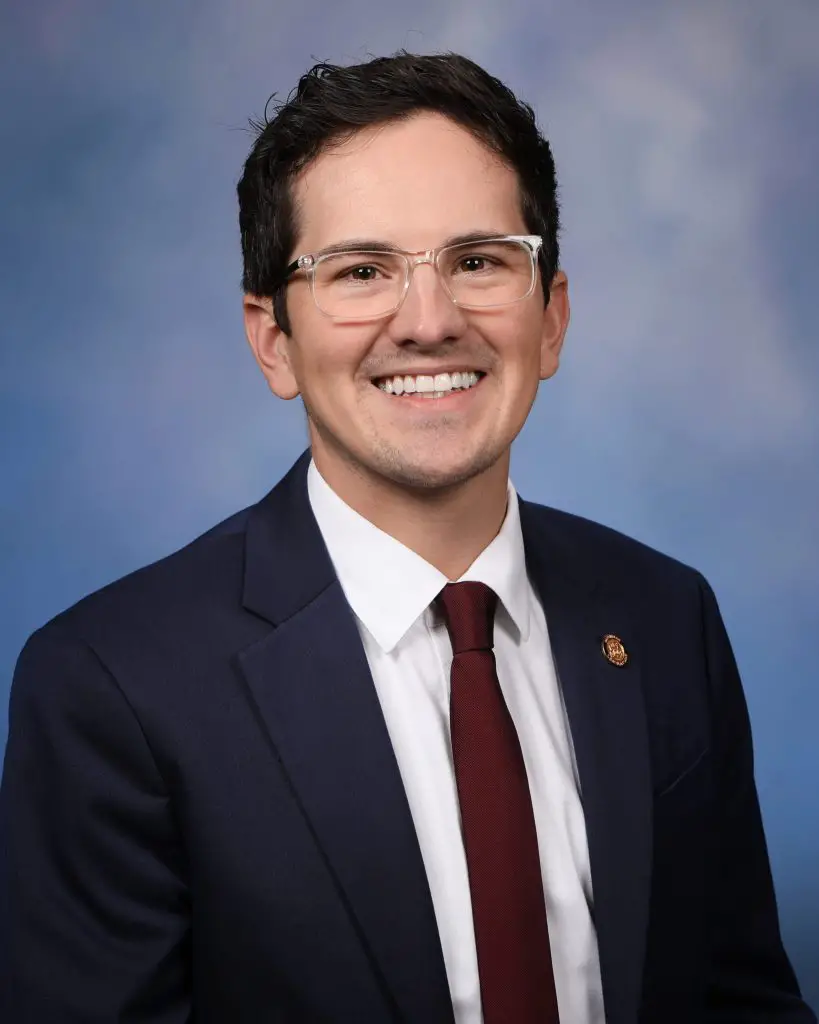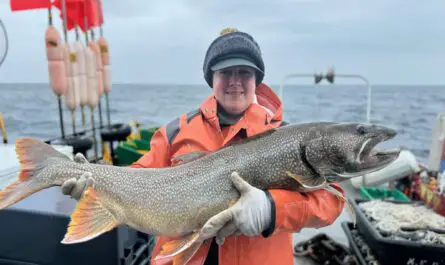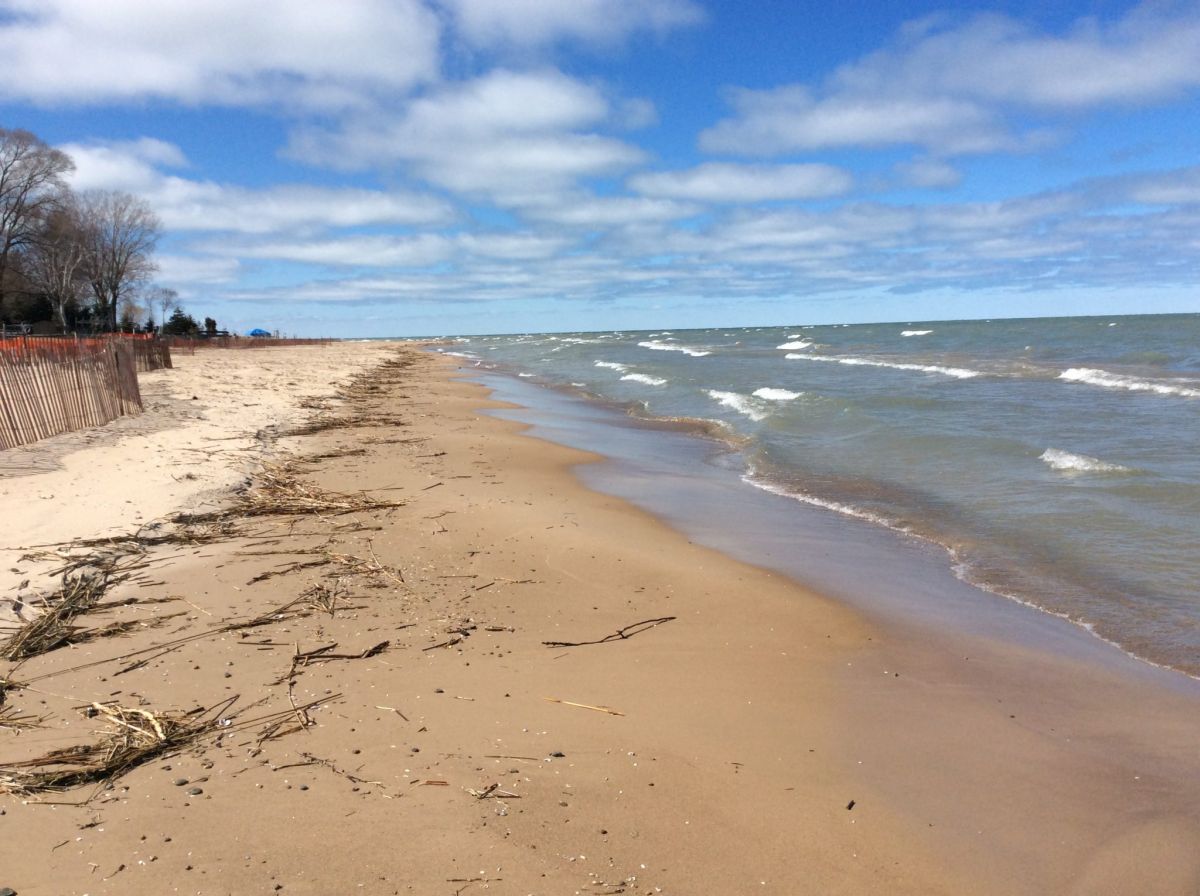In the tranquil waters of the Great Lakes, a storm is brewing – one that pits economic aspirations against environmental safeguards in the heart of Michigan. At the center of this maelan lies a legislative face-off featuring House Bills No. 5108 and No. 5553, each proposing divergent futures for Michigan’s cherished waterways and the communities that depend on them. This story dives deep into the murky waters of policy, environmentalism, and livelihood as we explore the rippling effects of these proposed laws. Will Michigan cast its net wide for commercial gain, or will it anchor itself to sustainable practices? Unravel the knots with us as we navigate the currents of Michigan’s legislative waters.
Table of Contents
What is At Stake
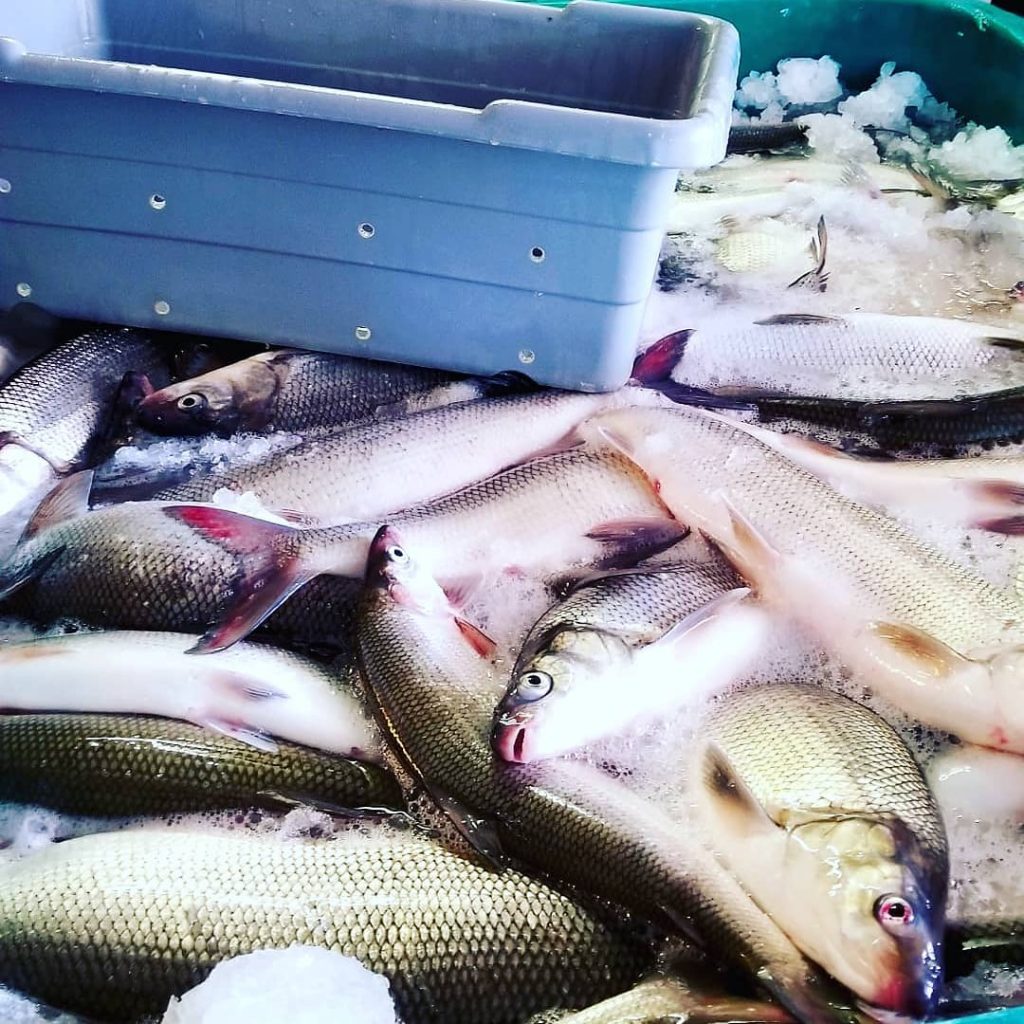
Michigan’s freshwater coasts are at the heart of a legislative duel about the future of Michigan Commerical Fishing regulations that has stirred the state’s environmental and economic waters. This dispute centers around two contrasting pieces of legislation: House Bill No. 5108 and House Bill No. 5553, each proposing a different future for Michigan’s commercial fishing industry. The former seeks to expand commercial fishing operations, potentially boosting local economies but raising environmental concerns. The latter aims to tighten restrictions on these operations, prioritizing ecological balance and resource sustainability. The outcome of this legislative standoff could redefine the balance between industry growth and environmental stewardship in the Great Lakes State.
Bill Background and Sponsors
House Bill No. 5108 emerges from the office of Representative Jason Morgan, supported by a coalition of lawmakers aiming to rejuvenate Michigan’s commercial fishing sector. This legislation reflects a broader ambition to leverage the state’s aquatic resources for economic gain, suggesting a shift towards more expansive commercial fishing practices. Its proponents argue for the potential economic uplift, envisioning a revitalized industry that could bring new life to Michigan’s coastal communities.
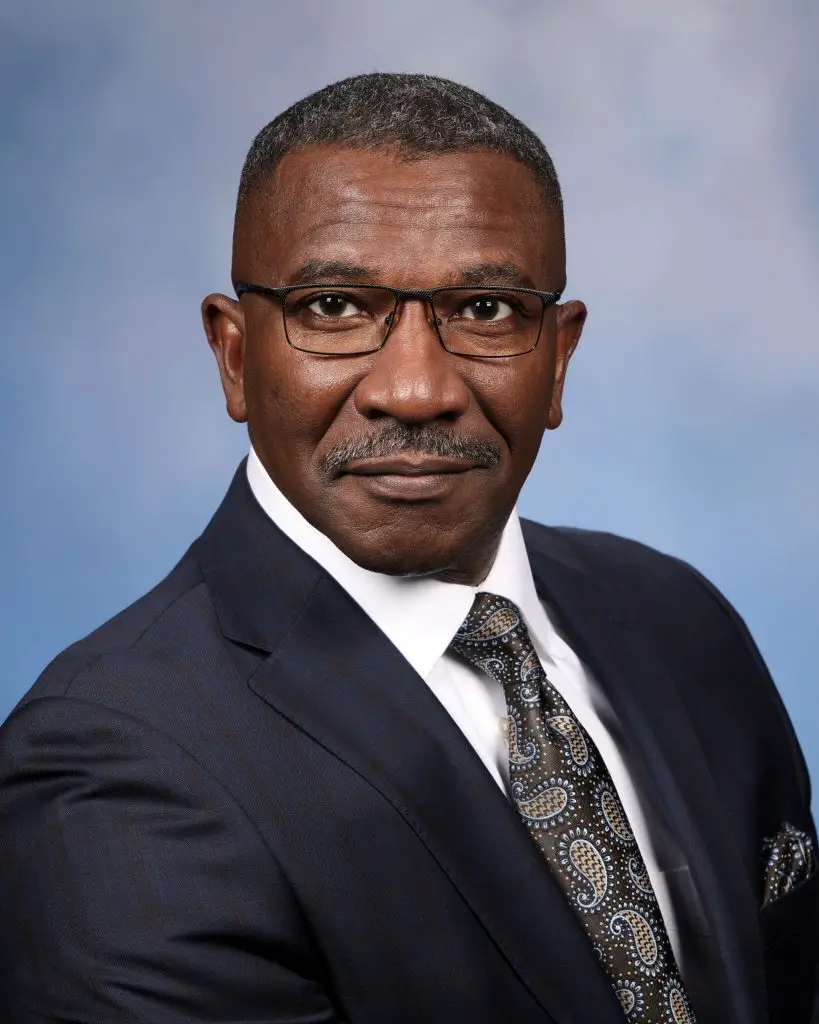
Contrastingly, House Bill No. 5553 is the brainchild of Representatives Amos O’Neal, Whitsett, Neeley, Young, and Brenda Carter, who champion a more conservative and sports fishing approach to fishery management. This bill responds to concerns about overfishing and ecosystem degradation, emphasizing the need for stringent regulation to preserve Michigan’s natural heritage for future generations. The sponsors of HB 5553 stand as custodians of environmental integrity, advocating for a model of sustainable exploitation that ensures the long-term viability of the state’s fish populations.
In the unfolding narrative of these legislative proposals, Michigan finds itself at a crossroads, facing a choice between diverging resource utilization and conservation paths. The dialogue between these bills encapsulates a broader debate on balancing economic development with environmental sustainability, a theme of ever-increasing relevance in the discourse of natural resource management.
Key Provisions in HB 5108
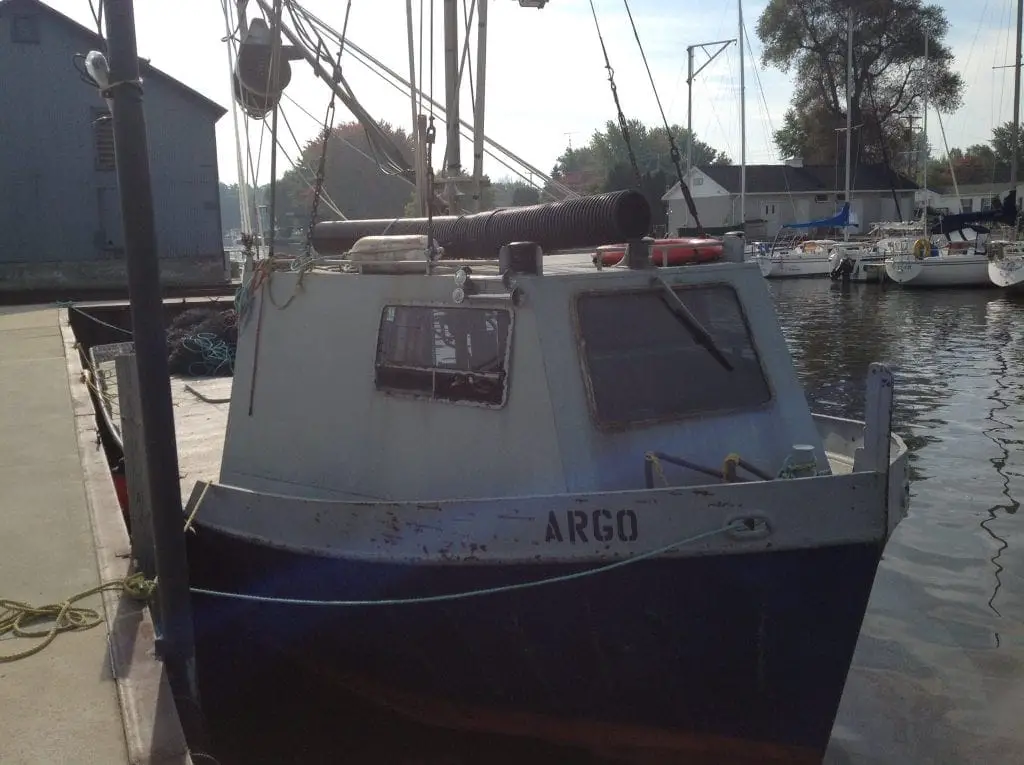
House Bill No. 5108 significantly departs from Michigan’s traditional commercial fishing laws. It introduces amendments to revitalize the state’s commercial fishing sector. Central to the bill are provisions that would reshape the landscape of commercial fishing across Michigan’s vast waterways.
Expansion of Commercial Harvest: The bill proposes expanding the variety of fish species available for commercial harvest, such as walleye, lake perch, and lake trout. (Tribal fishermen and Canadian commercial fishermen are allowed to take these species.) This move is designed to open up new opportunities for the commercial fishing industry and place Michigan Commercial Fishing on the same regulatory field as the tribes and Canada, but it raises questions about the sustainability of such expansions and their impact on fish populations.
Licensing and Regulations: HB 5108 seeks to modify existing licensing procedures, potentially making it easier for new entrants to join the commercial fishing market. This could lead to increased competition and innovation in the sector, but it also poses the risk of overfishing if not properly regulated.
Gear and Equipment Regulations: The legislation addresses the types of gear and equipment that may be used in commercial operations, aiming to balance efficiency and environmental protection. The specifics of these regulations will be crucial in determining their effectiveness in reducing bycatch and minimizing habitat disruption.
Economic Implications: By potentially increasing the scope and scale of commercial fishing operations, HB 5108 could have significant economic implications for Michigan’s coastal communities such as Caseville and Leland. The bill suggests a push towards leveraging the state’s aquatic resources as economic assets, though this approach must be weighed against the ecological costs.
Enforcement and Penalties: The bill outlines changes in enforcing fishing regulations and the penalties for non-compliance. These changes will be critical in ensuring that expanded commercial fishing activities do not lead to unsustainable exploitation of the state’s fishery resources.
House Bill No. 5108 represents a bold attempt to modernize Michigan’s commercial fishing industry. It offers the promise of economic growth and diversification but must be carefully balanced against the imperative to protect Michigan’s natural aquatic environments. The bill’s ultimate success will hinge on reconciling these potentially conflicting objectives.
Key Provisions in HB 5553
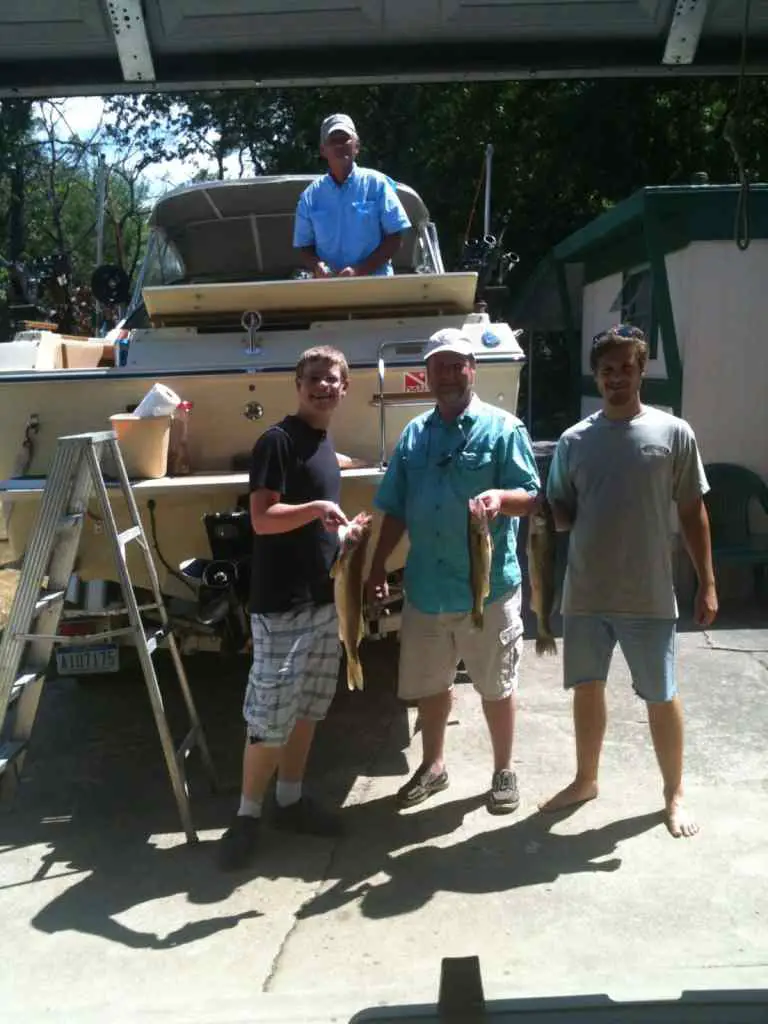
House Bill No. 5553 takes a markedly different approach from its counterpart, focusing heavily on conservation and sustainable practices in Michigan’s commercial fishing industry. This bill proposes a comprehensive set of measures to safeguard the ecological balance of Michigan’s waterways while maintaining a viable commercial fishing industry.
Stricter Species Regulations: At the heart of HB 5553 are tighter restrictions on the types of fish that can be commercially harvested. This measure aims to protect vulnerable species or of particular ecological importance, ensuring that commercial activities do not jeopardize the state’s aquatic biodiversity.
Enhanced Gear Restrictions: The bill introduces more stringent fishing gear regulations, focusing on minimizing bycatch and protecting habitat. These provisions reflect a commitment to environmentally responsible fishing practices that reduce unintended harm to non-target species and marine ecosystems.
Comprehensive Licensing Requirements: HB 5553 proposes changes to the licensing framework, emphasizing sustainability and adherence to conservation principles. The bill aims to ensure that all commercial fishers meet high standards of environmental stewardship, including requirements for sustainable fishing plans or adherence to best practices in fishery management.
Environmental Impact Assessments: A key provision in the bill is the potential requirement for environmental impact assessments for new or expanded commercial fishing operations. This would ensure that the ecological implications of fishing activities are thoroughly evaluated and understood before permits are granted.
Increased Monitoring and Enforcement: The legislation calls for enhanced monitoring of commercial fishing activities and stronger enforcement of fishing regulations. These measures are intended to ensure compliance with sustainable fishing practices and deter illegal or unsustainable activities.
In essence, House Bill No. 5553 represents a cautious and conservation-oriented approach to regulating commercial fishing in Michigan. It seeks to balance the industry’s economic benefits with the need to protect and preserve the state’s aquatic environments for future generations. The success of this bill would depend on its ability to foster a sustainable, ecologically responsible commercial fishing sector.
Comparative Analysis: Approach to Regulation
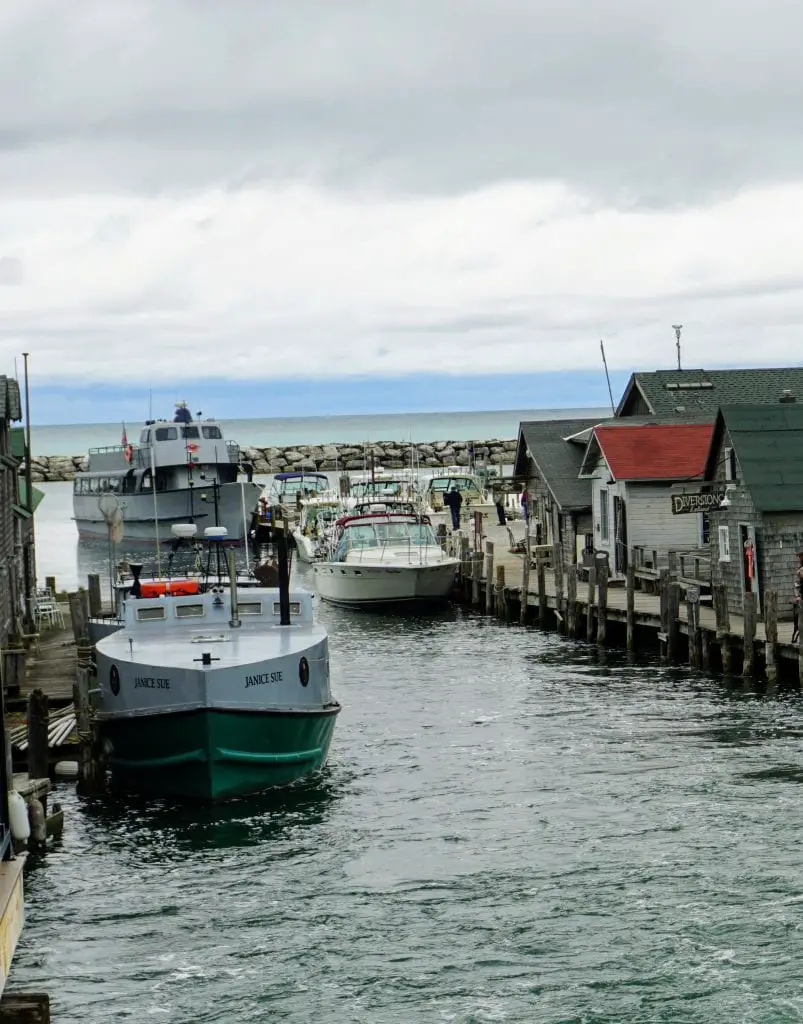
The legislative battleground set by House Bills No. 5108 and No. 5553 showcases a profound divide in approaches to regulating Michigan’s commercial fishing industry, reflecting broader tensions between economic development and environmental stewardship.
Expanding vs. Restricting Commercial Harvest: HB 5108 sets the stage for an expansion in commercial fishing by increasing the number and types of fish that can be commercially harvested. This approach is rooted in economic motivations, aiming to boost the commercial fishing industry and related local economies. In stark contrast, HB 5553 tightens the leash, proposing stricter limitations on harvestable species to safeguard biodiversity and prevent overfishing. This reflects a precautionary principle, prioritizing ecological sustainability over immediate economic gains.
Gear and Equipment Regulation: The approach to fishing gear and equipment further distinguishes the two bills. HB 5108 appears to take a more lenient stance, potentially opening the door for using more varied and efficient gear under the banner of industry modernization. Meanwhile, HB 5553 adopts a more restrictive approach, emphasizing gear regulations to reduce bycatch and minimize environmental impact. The intent is to ensure that commercial fishing practices do not disrupt marine ecosystems or endanger non-target species.
Licensing and Enforcement: Both bills propose modifications to the existing licensing framework but with different ends in sight. HB 5108 seeks to streamline licensing procedures, making it easier for new entrants to join the commercial fishing market. This could democratize access to the industry but raises concerns about oversight and sustainability. Conversely, HB 5553 aims to bolster licensing requirements, emphasizing sustainable practices and environmental accountability. This could raise the bar for entry and operation, aligning commercial activities closely with conservation goals.
Economic vs. Environmental Priorities: The bills represent diverging priorities at their cores. HB 5108 leans towards economic optimization, seeking to harness Michigan’s aquatic resources to their fullest economic potential. HB 5553, on the other hand, champions an environmental ethos, advocating for a commercial fishing industry that operates within the bounds of ecological sustainability and long-term resource management.
The clash between HB 5108 and HB 5553 encapsulates a classic debate: should regulatory frameworks prioritize immediate economic benefits and industry growth, or should they serve as custodians of environmental integrity and sustainability? The answer to this question will shape the future of Michigan’s waters and fishing industry for years.
Impact on Michigan’s Fisheries and Economy
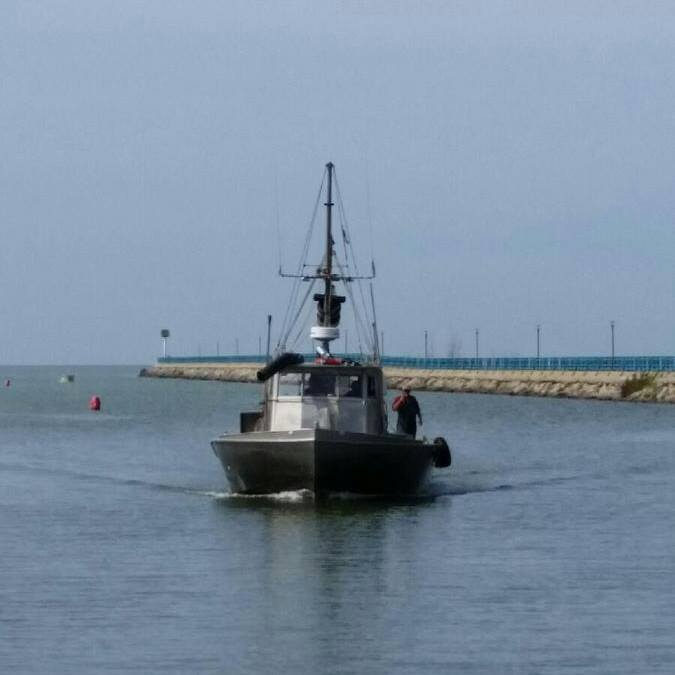
The legislative tug-of-war embodied by House Bills No. 5108 and No. 5553 has far-reaching implications for Michigan’s aquatic ecosystems and economic landscape. Let’s navigate through these murky waters to understand the potential impacts of each approach on Michigan’s fisheries and economy.
Fisheries Sustainability: HB 5108, with its push for expanded commercial fishing, could potentially lead to short-term boosts in fish harvests and profits. However, this could lead to overfishing without stringent sustainability measures, disrupting the ecological balance and endangering fish populations. In contrast, HB 5553’s restrictive measures aim to ensure long-term fisheries sustainability. By conserving fish populations and habitats, HB 5553 could promote a healthier, more resilient aquatic ecosystem, which is foundational for the enduring success of both commercial and recreational fishing.
Economic Development: The economic implications of these bills diverge significantly. HB 5108 could stimulate economic growth in the short term by expanding the commercial fishing industry and ancillary businesses. This could lead to job creation and increased revenue for coastal communities. However, this growth might only be sustainable if it leads to depleted fisheries. On the other hand, HB 5553 could constrain economic growth in the short term due to tighter regulations and potential reductions in fishing quotas. Yet, its focus on sustainability could foster a stable, enduring commercial fishing sector, offering long-term economic benefits and protecting the livelihoods of future generations of anglers.
Community Impacts: The communities along Michigan’s shores are intricately tied to the health of the fisheries. HB 5108’s approach might initially bring prosperity but could risk the long-term viability of these communities if fish stocks decline. HB 5553 aims to preserve the aquatic environment and fish populations, which may limit immediate economic opportunities but promise a more stable future for these communities.
Recreational Fishing: The impact on recreational fishing is another critical consideration. HB 5108 could lead to conflicts over fish stocks and habitat degradation, potentially diminishing the recreational fishing experience and economic contributions. Conversely, HB 5553, while primarily focusing on commercial activities, indirectly benefits recreational fishing by maintaining robust fish populations and healthier waterways.
Tourism and Local Economies: Finally, the health of Michigan’s fisheries directly influences tourism, an important economic driver. Pristine waters and abundant fish attract tourists, supporting local businesses, from charter boats to restaurants and hotels. While HB 5108 might promise more immediate economic activity, HB 5553’s emphasis on sustainability could ensure that Michigan remains a prime destination for fishing enthusiasts and nature lovers.
Public and Legislative Response
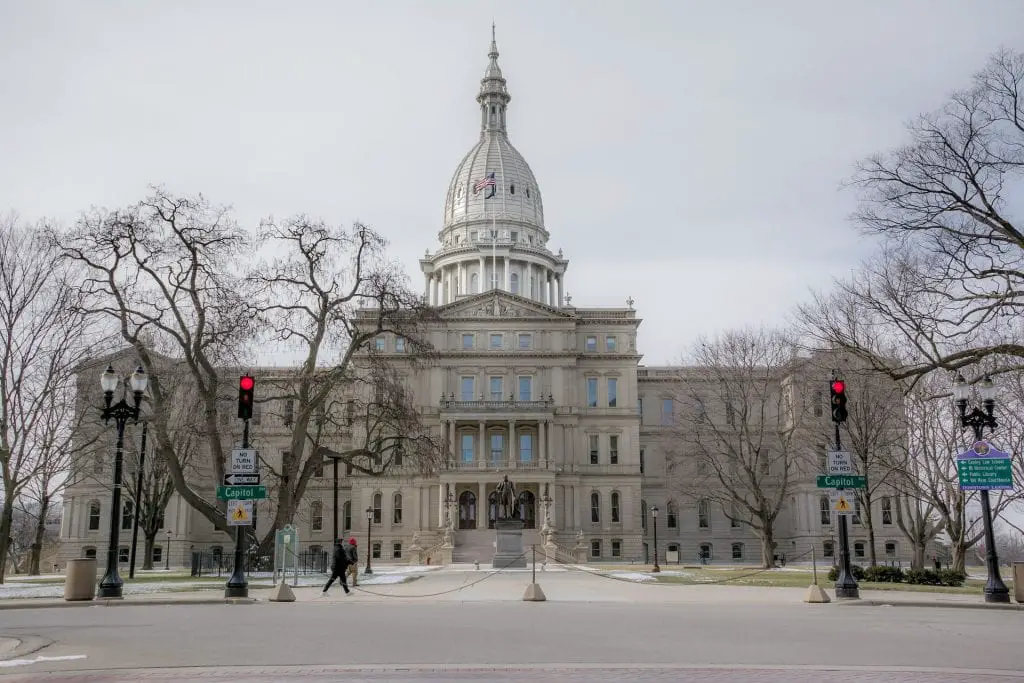
Proposed House Bills Nos. 5108 and Nos. 5553 has stirred public and legislative opinion in Michigan, sparking a lively debate that reflects the broader societal tensions between economic development and environmental conservation.
Public Response: The public reaction has been a mixed bag, mirroring the diverse interests of Michigan’s population. On one side, there’s a vocal segment of the commercial fishing industry and its supporters advocating for HB 5108, praising its potential to revive and expand the state’s fishing economy. They argue that the bill represents a much-needed modernization of outdated regulations, potentially bringing jobs and prosperity to coastal communities.
Conversely, environmental groups, conservationists, and recreational anglers have rallied behind HB 5553. They laud its emphasis on sustainability and protection of natural resources, seeing it as essential to preserving Michigan’s ecological heritage and ensuring the long-term viability of fish populations. Social media platforms and public forums have been abuzz with discussions as community groups and NGOs mobilize to make their voices heard.
Legislative Response: The response within Michigan’s legislature reflects a division that transcends party lines, highlighting differing regional priorities and economic philosophies. HB 5108 has found support among legislators from districts with strong commercial fishing interests or those looking to boost local economies through increased industrial activity. On the other hand, HB 5553 has garnered backing from lawmakers concerned with environmental issues and those representing constituencies where recreational fishing and tourism play significant economic roles. Legislative debates have been intense, with both sides presenting data and expert testimony to support their positions.
Media Coverage: The local and regional media have extensively covered the debate, often framing it as a classic conflict between economic development and environmental protection. Op-eds and editorial pieces reflect the spectrum of opinions, with some commentators urging compromise solutions that could reconcile the two bills’ divergent goals.
Next Steps: As both bills go through the legislative process, public hearings and committee debates are expected to draw significant attention. Stakeholder meetings and lobbying efforts are ramping up, with both sides seeking to sway undecided legislators and influence public opinion.
Balancing Interests and Sustainability
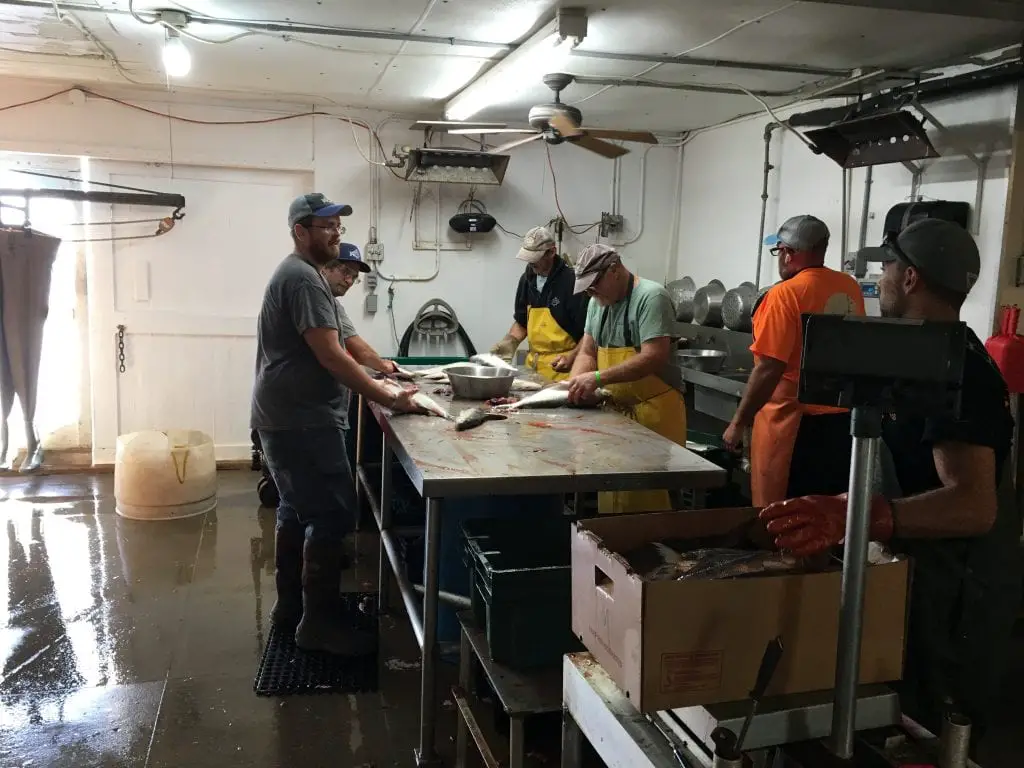
The legislative saga of House Bills Nos. 5108 and Nos. 5553 has propelled Michigan into a pivotal moment. It calls for a delicate balancing act between the competing imperatives of economic vitality and environmental stewardship. The debates surrounding these bills reflect deeper societal questions about valuing and prioritizing natural resources, community livelihoods, and our environmental legacy.
The path forward requires a nuanced approach that transcends binary choices. It demands collaborative efforts recognizing the interconnectedness of Michigan’s economic and ecological systems. The dialogue ignited by these bills should not end in the legislature but continue in communities, involving fishermen, business owners, conservationists, and everyday citizens in crafting sustainable solutions.
Sustainability need not be at odds with economic growth; the long-term prosperity of Michigan’s coastal communities is inseparable from the health of its waterways and fish populations. Innovative approaches and technologies can drive a new era of commercial fishing that is both profitable and environmentally friendly. Meanwhile, protecting Michigan’s aquatic ecosystems ensures that they continue providing economic benefits, recreational opportunities, cultural value, and natural beauty for all Michiganders.
Final Thoughts About Michigan Commerical Fishing Regulations
Legislators face the challenging task of drafting laws that encapsulate this balance. The best available science must inform their decisions, attentive to the needs of diverse stakeholders, and guided by a vision for a sustainable future. It is a moment for leadership that looks beyond the immediate horizon to the lasting impacts on Michigan’s natural heritage and its people.
As Michigan navigates these legislative waters, the outcome will serve as a testament to the state’s commitment to its economy and environment. The ultimate goal should be clear: a thriving, sustainable commercial fishing industry that operates harmoniously with the Great Lakes’ ecological balance, ensuring prosperity and natural splendor for future generations.
Related Reading
Will Michigan House Bill 5108 Revitalize Michigan’s Commercial Fishing Future? – A legislative proposal is poised to bring a sea change. House Bill 5108, a beacon of hope for the commercial fishing industry, emerges against decades-long decline and regulatory challenges. This bill, introduced by State Representative Jason Morgan, is not just a legislative proposal; it’s a clarion call for revitalization, balancing economic aspirations with ecological sustainability for Michigan’s Fisheries.
Why You Should Eat Wild Caught Fish From the Great Lakes – We have been following the plight of commercial fishing on the Great Lakes for several years. As a result, folks around the country have contacted us to let us know that the assault on commercial fishing for wild caught fish is happening not only in Michigan but every fishing area in North America.
We ask a DNR Fish Biologist; What Happened to All the Yellow Perch in Saginaw Bay? – We have a conversation with a Michigan DNR fish biologist on why we have had a decline of yellow perch on Saginaw Bay. The answer was a bit of a surprise.

